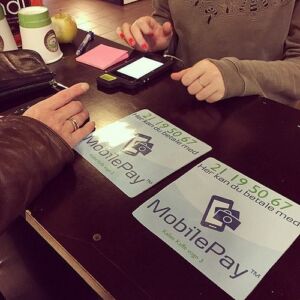News
MobilePay breaking new records
This article is more than 9 years old.
But few Danes choose this payment method in supermarkets

Pay on the go is the message (photo: Christian Jensen)
Danske Bank’s mobile payment service, MobilePay, continues to break records, reports Børsen.
In 2015, the service doubled its figures as 18 billion kroner was transferred via MobilePay in comparison to 7 billion kroner in 2014.
In December alone, Danes made 10 million unique transactions using the app.
According to Mark Wraa-Hansen, the head of MobilePay, Danske Bank plans to introduce new products and concepts in 2016 to at least double the use of the service.
Not used in supermarkets
Despite the increased popularity, MobilePay is seldom used as a payment method at Danish supermarkets, where Danske Bank actually makes money from the service.
While private users get MobilePay for free, businesses have to pay a fixed fee for the service as well as a fee for each transaction.
In December, some 449,000 MobilePay transactions were made in stores, which represents a mere 0.4 percent of the total 116 million card payments.
As of now, the MobilePay service is available in Dansk Supermarked (Netto, Føtex, Bilka and Salling) and Rema1000 stores.










































